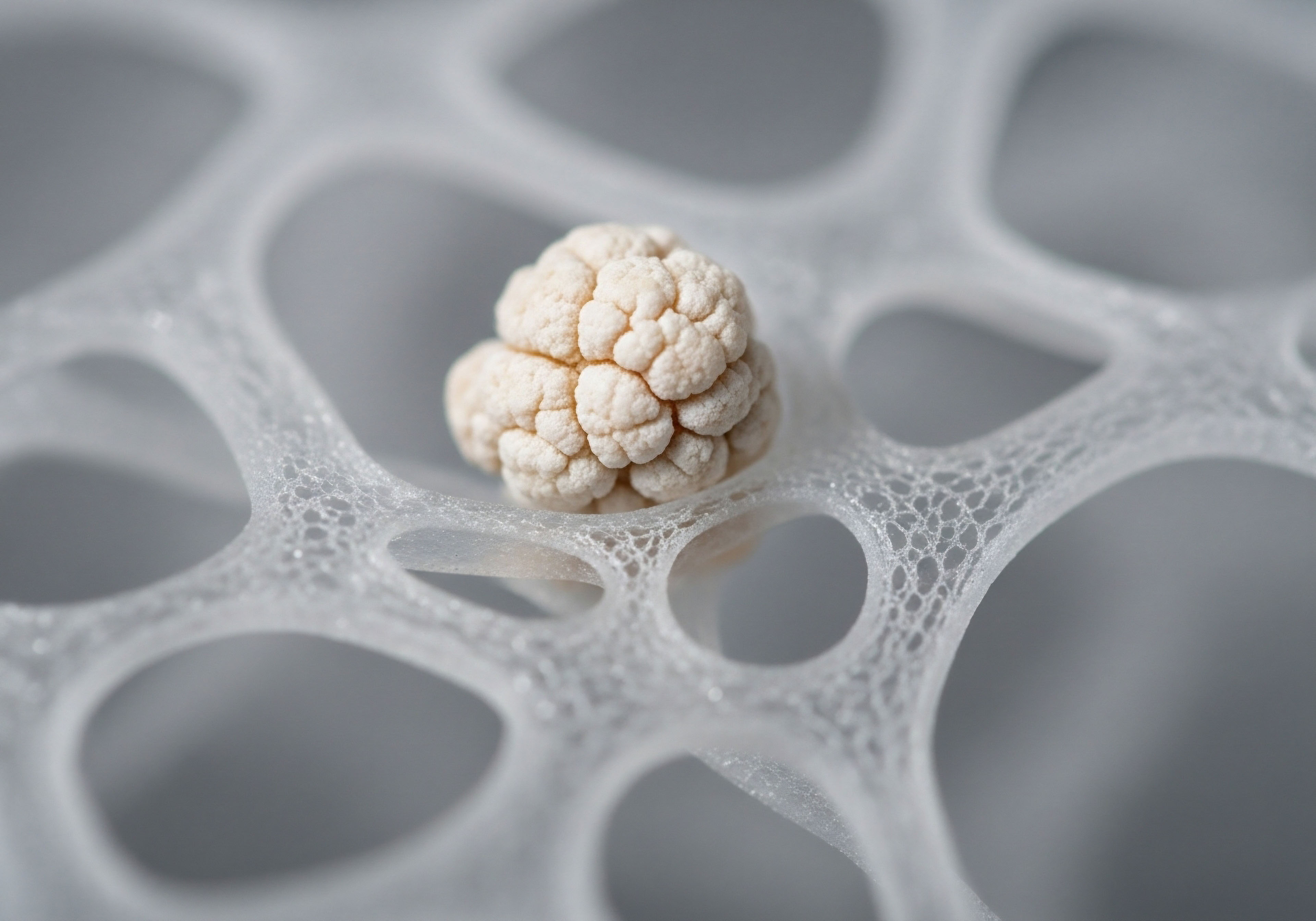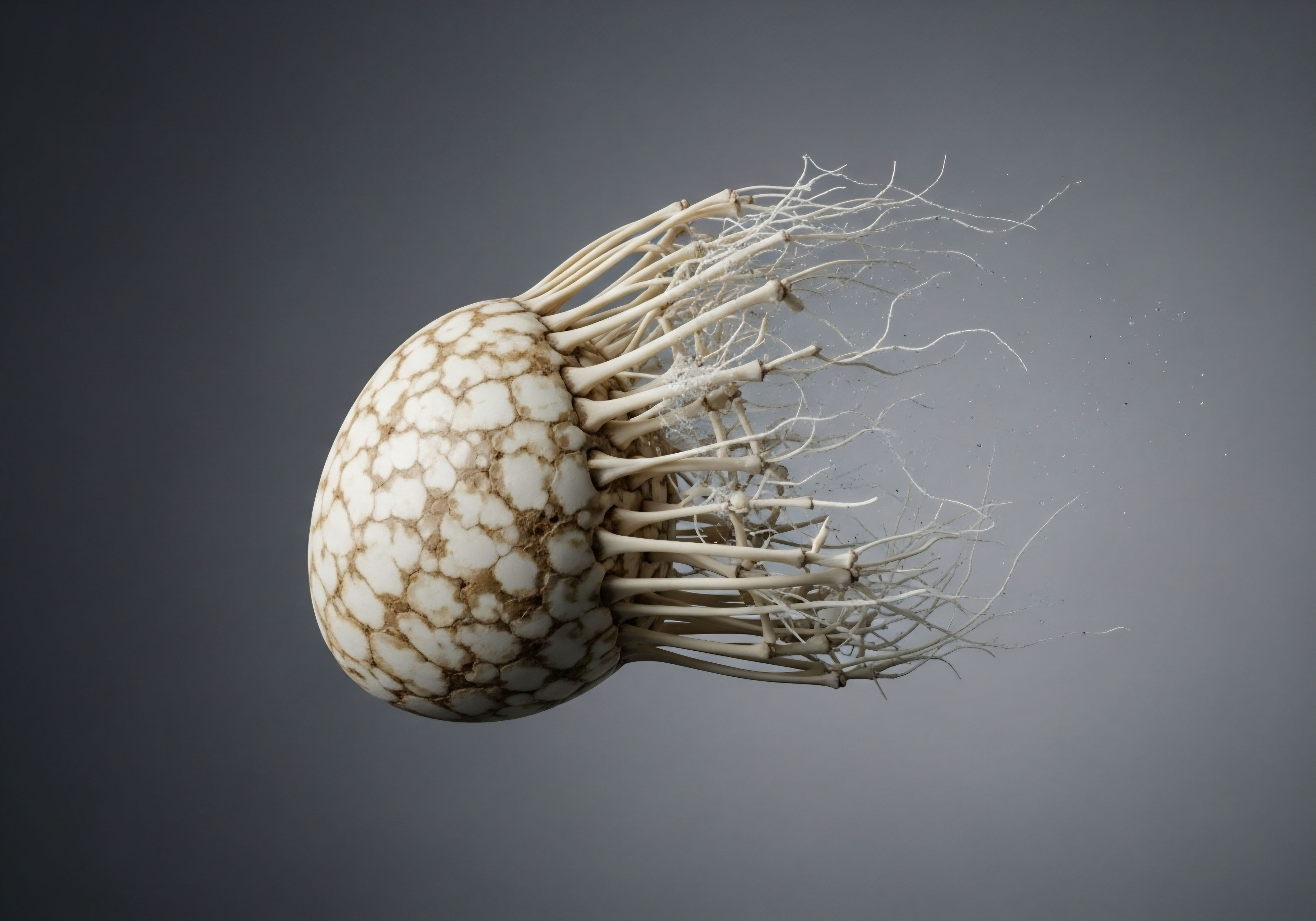

Your Doctor Is Managing Your Decline
You feel it as a subtle shift in the current. The energy that once propelled you through demanding days now seems to wane. Mental clarity gives way to a persistent fog, and the reflection in the mirror no longer matches the vitality you feel within. This is not a failure of willpower.
These are signals from your body’s intricate communication network, a system of hormones and peptides that dictates everything from your mood and metabolism to your strength and cognitive function. Conventional medicine often frames this as an inevitable part of aging, a slow decline to be managed with resignation. A different perspective exists, one that views your biology as a high-performance system that can be recalibrated and optimized.
Your biology is not a destiny to be endured, but a system to be engineered for peak performance.
The conversation around vitality has evolved. We now possess the tools to move beyond merely treating the signals of decline and can instead address the root causes. Hormone replacement therapy (HRT) and peptide protocols are at the forefront of this evolution.
For men, this could mean addressing the gradual drop in testosterone that begins after age 30, a decline that can impact everything from muscle mass to mood. For women, the hormonal shifts of perimenopause and menopause can profoundly affect quality of life, and HRT offers a way to regain balance. These are not temporary fixes. They are strategic interventions designed to restore your body’s optimal state, allowing you to reclaim your physical and mental edge.


Recalibrating Your Internal Engine
Think of your endocrine system as the sophisticated software that runs your body. Over time, due to age and environmental stressors, this software can become outdated, leading to performance lags. Hormone and peptide therapies are akin to a targeted software update, designed to restore the system’s original, high-performance settings. These protocols work by reintroducing the precise biochemical messengers your body is missing, allowing it to function with renewed efficiency.

The Blueprint for Recalibration
The process begins with a comprehensive analysis of your body’s current hormonal state. This involves detailed blood work to measure key biomarkers, providing a clear picture of your unique physiology. Based on this data, a personalized protocol is designed. This is not a one-size-fits-all approach. Your protocol is tailored to your specific needs and goals, whether that’s increased energy, improved body composition, or enhanced mental clarity.
- Testosterone Replacement Therapy (TRT) ∞ For individuals with clinically low testosterone, TRT replenishes this vital hormone to optimal levels. This can lead to significant improvements in energy, mood, muscle mass, and libido.
- Peptide Therapy ∞ Peptides are short chains of amino acids that act as signaling molecules in the body. Specific peptides, like Sermorelin, can stimulate the body’s own production of growth hormone, which plays a key role in cellular repair, metabolism, and overall vitality.
Modern wellness protocols are designed to work with your body’s natural systems, not against them.
Unlike outdated approaches that involved synthetic hormones with a higher risk profile, modern bioidentical hormone replacement therapy uses hormones that are molecularly identical to those your body produces. This ensures a more natural interaction with your body’s receptors, leading to better outcomes and fewer side effects. The goal is to restore your body’s hormonal balance in the most physiological way possible.


The Shift from Surviving to Thriving
The decision to pursue hormonal optimization is often triggered by a moment of recognition. It could be the persistent fatigue that no amount of sleep can cure, the frustrating inability to lose weight despite a healthy diet and exercise, or the feeling that you’ve lost your competitive edge.
These are the moments when you realize that simply managing the decline is no longer an acceptable option. The North American Menopause Society now recommends hormone therapy as the most effective treatment for vasomotor symptoms in menopause, highlighting the importance of addressing these quality-of-life issues.

The Timeline of Transformation
While every individual’s experience is unique, the benefits of hormonal optimization often unfold in a predictable sequence. Within the first few weeks, many people report improved sleep quality and a noticeable increase in energy levels.
Over the following months, you may experience enhanced mental clarity, a more stable mood, and improvements in body composition, with an increase in lean muscle mass and a reduction in body fat. For many, the most profound change is the restoration of their overall sense of well-being and vitality. The journey is one of incremental gains that culminate in a significant shift in your daily experience.
The conversation with a qualified healthcare provider is the first step. They can help you understand your options and determine if hormone or peptide therapy is the right path for you. This is a proactive choice to invest in your long-term health and performance, a decision to move from a reactive state of managing symptoms to a proactive state of optimizing your life.

Architect Your Own Vitality
The tools to reclaim your biological prime are no longer the exclusive domain of elite athletes and longevity pioneers. They are accessible, backed by science, and capable of producing profound shifts in your quality of life. Understanding your own hormonal landscape is the first step toward taking control of your health narrative. The question is no longer whether decline is inevitable, but whether you will choose to actively architect your own vitality.

Glossary

trt

peptide therapy




